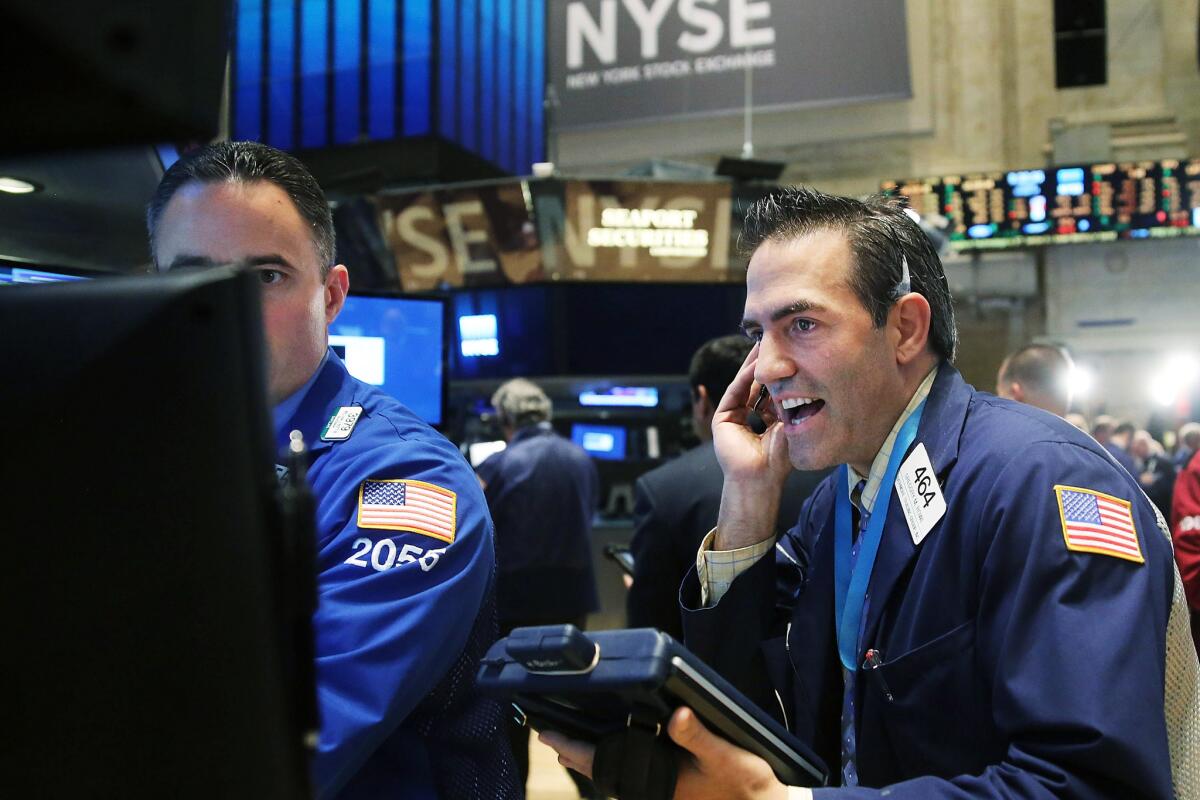European stocks weigh on U.S. markets

European stocks dropped throughout the day Monday, helping to pull down U.S. markets in the early going as investor confidence in Europe’s economic prospects continued to sag.
The latest news to jar what have been increasingly volatile markets was a drop of business confidence in Germany, the faltering engine of the European economy. It was the sixth straight monthly decline in confidence.
The German DAX and the French CAC indexes slumped more than a percentage point through most of the day, gaining near the end to close with declines of 0.65% and 0.51%, respectively.
In early U.S. trading, the Standard & Poor’s 500 index, the tech-heavy Nasdaq and the Russell 2000 of small-company stocks were down between one-fifth and one-third of a percentage point. The Dow Jones industrial average of 30 large-company stocks managed to stay in positive territory but also slipped into a loss in midday trading.
Markets on both sides of the Atlantic are still assimilating the results, released Sunday, of the European Central Bank’s financial examination of the continent’s major banks. The so-called stress tests found that 13 of the 130 banks under review would not survive a financial crisis.
The results were somewhat better than analysts had expected and raised hopes that the banks that fared well would be free to increase lending and provide a boost to a continental economy that many fear is heading back into recession.
Still, in its announcement, the central bank stressed that the banks in general needed to take “further action” to write down nonperforming loans and shore up their capital position, tempering the market’s response to the results. Overall, the test found that 25 banks needed the equivalent of about $32 billion in additional capital.
For most of the month, the markets have been buffeted by what analysts say is the widening divergence between the U.S. economy, which has made real steps toward recovery and shown reasonable job creation, and the rest of the world, especially Europe where growth has ground close to zero.
And with fiscal policy facing political gridlock in both the U.S. and Europe, central bank policy has loomed larger than in previous economic cycles, and policy debates between inflation hawks and doves contribute to increasing market volatility.
By midmorning trading, the VIX, Wall Street’s so-called “fear index,” had jumped more than 9% before dropping to a mid-single-digit increase as European markets stabilized at lower levels toward the end of trading.
Twitter: @deanstarkman
More to Read
Inside the business of entertainment
The Wide Shot brings you news, analysis and insights on everything from streaming wars to production — and what it all means for the future.
You may occasionally receive promotional content from the Los Angeles Times.










